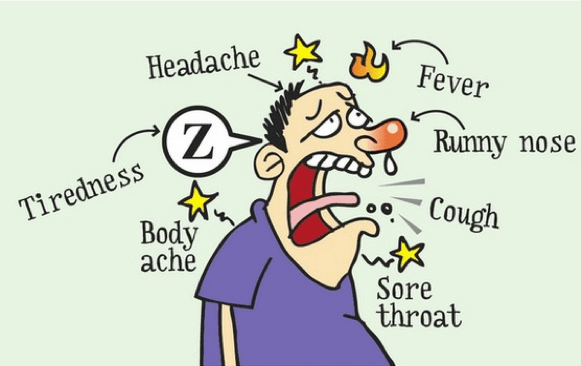Flu and You: Influenza Fact Sheet 2020/2021
Influenza and pneumonia are among the top 10 leading causes of death in Canada. While most people can recover from the flu in 1-2 weeks, some cases can cause severe illness. Public Health estimates that each year, there are 12,200 Canadians hospitalized with flu, and approximately 3,500 deaths.
The best way to prevent infection is to get vaccinated.
Flu vaccine is recommended for anyone age 6 months and older.
Flu vaccination is more important than ever with the current COVID-19 pandemic.
Although the flu vaccine won’t protect you from the COVID-19 virus, it can help to keep people out of hospitals, reduce exposure risk, decrease unnecessary testing, and free up healthcare resources for severely ill patients.
Transmission and symptoms
Influenza transmission is by droplets and is spread through coughing or sneezing. Mucus and respiratory secretions can also cause the spread of the virus. Incubation period usually lasts 1-4 days, but influenza can be contagious before symptoms even start.
Symptoms can include a sudden onset of high fever, cough, and/or muscle aches and pains. Other common symptoms include headache, fatigue, loss of appetite, sore throat, cough, and/or runny nose.
Who is at high risk for influenza?
It is strongly recommended that flu vaccine be given to the following groups:
- Children younger than 5 years old
- Adults age 65 years and older
- Pregnant women at any gestational age
- Residents of nursing homes and other chronic care facilities
- Adults and children with the following chronic health conditions:
- Heart disease (Heart attack, congenital heart disease, congestive heart failure)
- Respiratory disease (Asthma, COPD, cystic fibrosis)
- Neurologic and neurodevelopment conditions
- Stroke
- Endocrine and metabolic disease (Diabetes, inherited metabolic disorders)
- Kidney disease
- Liver disease
- Blood disorders (Hemoglobinopathy, anemia, sickle cell)
- Morbid obesity (BMI greater than or equal to 40)
- Younger than 19 years old on long-term aspirin or salicylate medications
- American Indians and Alaska Natives
- Cancer and other immune compromising conditions (HIV or AIDS, current chemotherapy/radiation treatment, chronic corticosteroid treatment, other medications that suppress the immune system)
Please talk to your doctor if you might have had an allergic reaction to the flu vaccine in the past.
Herd immunity
Even if you are low risk, getting flu vaccination may also protect the people around you. When a sufficient portion of the population has become immune to an infection, it reduces the likelihood of infection for people who lack immunity or who are unable to get the flu shot. This could protect vulnerable people, such as babies, frail elderly, and people with chronic health conditions.
Preventing bacterial pneumonia
The flu vaccine does not have any protection against bacterial pneumococcal disease. Pneumococcal bacteria can cause lung infection (pneumonia), bloodstream infection (bacteremia) and infection of the spinal cord or lining of the bran (meningitis). There are 2 vaccines available to help prevent pneumococcal infection:
- Pneumovax23
- Prevnar13
These are recommended for all adults age 65 or older, and can potentially be given sooner if a patient has high risk conditions (such as chronic respiratory disease or immunocompromise). Talk to your doctor to see if these vaccines are right for you.
Universal precautions – Protect yourself and others from infectious diseases
It is important to remember that each of us can do our part by following public health guidelines to prevent the spread of contagious diseases.
- Hand washing – with soap and water for at least 20 seconds or use an alcohol based hand sanitizer if hand washing is not available
- Universal mask wearing – to cover your nose and mouth in public places
- Physical distancing – keeping 6 feet or 2 meters distance from others
- Disinfecting commonly touched surfaces regularly
- Staying home if you are sick, except to get medical care
2020 Flu Clinic Days
Saturday, October 31
Saturday, November 7
Please call 905-605-4744 to book a flu vaccination appointment.
References
- Centers for Disease Control and Prevention
- Government of Canada Influenza: For Health professionals
- Public Health Ontario
- Canadian Immunization Guide Chapter on Influenza and Statement on Seasonal Influenza Vaccine






